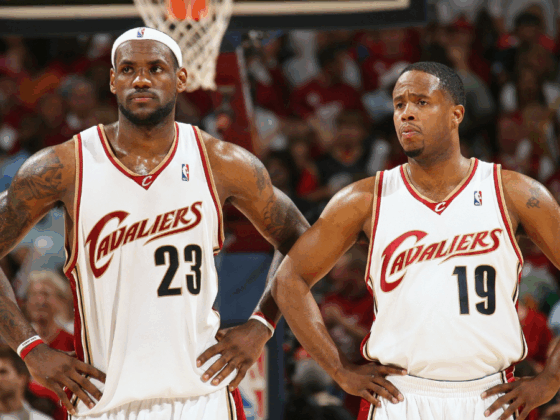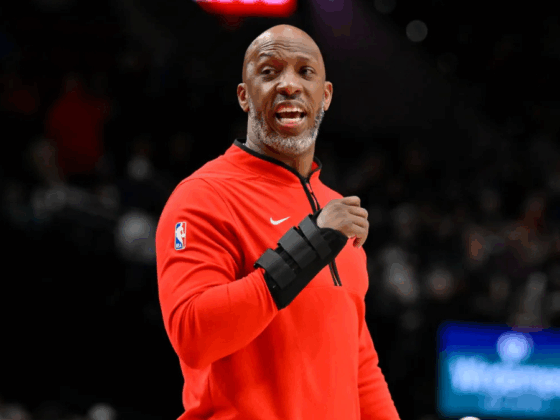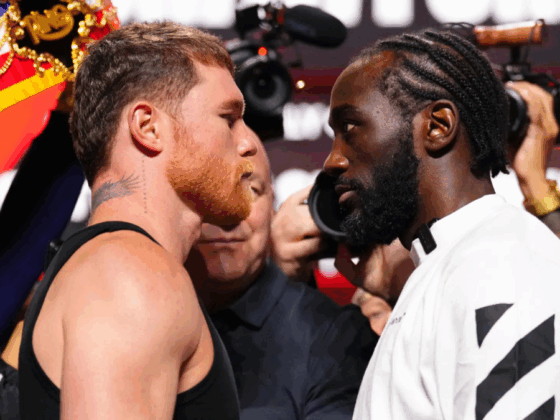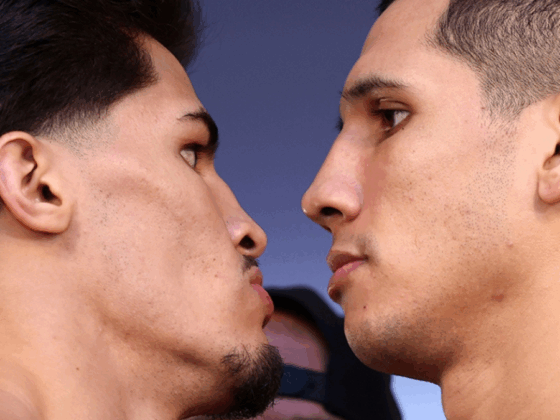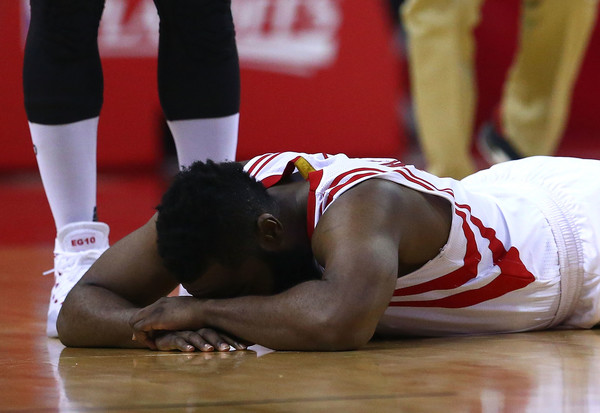
Daryl Morey has qualms about the integrity of the MVP voting process, recently positing that the NBA MVP selection may not be a “good process” and that, maybe, such awards should be eliminated altogether. During a few recent NBA seasons, there have been results that require us to consider whether MVP criteria is at all stable. Morey challenges us to rethink the way we celebrate certain accolades that may not always emanate from objective steps.
If voting outcomes can be influenced by personal vendettas and strong narratives, then we risk the potential of elevating something trivial and, even worse, potentially using the number of MVPs acquired, in retrospect, as primary substantiation for a player’s worth relative to other NBA greats. (I want to stress the use of the conditional here because I think we can find a way to approach consistency a bit more quickly.)
You could relate this NBA MVP outcry to those of baseball pitchers and batters who are jaded with the inconsistency of an umpire’s strike zone. There probably exist fans who would rather use computers to declare “strike” or “ball” and to shrink the gray area.
This will be the fifth NBA MVP related writing that I’ve done (1, 2, 3, & 4 are here); my objective is to continue designing a model for NBA MVP voting that can hopefully predict outcomes of future MVP votes if the vote is conducted in a manner that’ll be reasonably consistent on a year-by-year basis.
General NBA MVP Criteria
For a minute or two, attempt to come up with quantitative or qualitative criteria that describe a most valuable player.
If you do a quick brainstorm, it may look a bit like this, plus/minus two or three attributes:
- Sum of Points, Rebounds, Assists
- Team Wins
- Wins Above Expectation
- Signature Box-Score Performances
- Team’s Offensive/Defensive Brilliance
- Interaction between True Shooting% & Usage%
- AST%, REB%, STL%, BLK%
- Games Played
Maybe, it’ll include the following, as well:
- “We aren’t any good without player X”
- Outcome given preseason projections
- If the average fan derives a good deal of excitement while watching this player
- Fourth Quarter Comebacks
Now, consider whether your brainstorming yields variables that can be either substantiated by data collection or inferred from a considerable amount of film and corroboration among other experts (coaches, some players, etc.). Also, consider which criteria will convey enormous player value without overwhelming subjectivity if they were to be used for NBA MVP argumentation.
For example, if hypothetical Player A (30.1 PPG, 4.9 RPG, 10.8 APG) is the MVP candidate-in-question and A’s team won the most games, presenting a rebuttal by pointing to his deficient scoring from beyond the arc, woefully low assist percentage, or careless turnover percentage in a highly used play type, like PnR ball-handler, would become a greater undercutting defeater than saying that “A’s supporting cast just isn’t bad enough for him to be considered valuable” or “A’s team often won comfortably; therefore, A didn’t wow me during clutch moments”.
If we can pursue criteria that limit our emotional influence, results could be a bit less contentious.
Model & Consistency Assessment
Fortunately, there’s a way through regression to evaluate whether MVP voting has been reasonably consistent over the years. Since 2000, I took observations of every player who received an MVP vote (minus players who played for two teams in a season or anyone from 2011-12 lockout) & regressed factors to find those that are statistically significant. Evaluating MVP voting by using priors from the share of MVP points that a player receives will introduce a bit of the human element, so this process is designed to assess what voters usually look for in their candidates & if they’ve been diligently applying the criteria each year.
This outcome ought to be an upgrade over the first iteration of my SteadyLosing MVP model because it includes more observations and independent variables with greater explanatory power. It’s improved upon its R-squared value at 63% but still will be tweaked along the way after tests for multicollinearity, experimenting with a few other variables to see if we can grasp nearly everything voters take into account.
Version 2 – Independent Variables
- Team Wins
- Pythagorean Diff – suggesting a team’s win tally above/below expectation (quantitative representation of performance relative to expectation)
- 40-Point Game Frequency – a bit of a surprise, but it seems that voters are generally partial to scoring.
- VORP – I wanted to use RPM instead, but I wouldn’t’ve been able to find the RPM from the earlier seasons. With that being said, BPM does a pretty commendable job of assessing the production, though it might overvalue defensive rebounding percentage. After all, I simply wanted to provide a variable that characterizes a player’s full production in a slightly more objective light. VORP is a corollary to BPM.
- Offense’s Z-Score – Z-score indicates the number of standard deviations away from the mean the team’s offensive efficiency rating was, in this case; higher is better. There have been players who have won greater voting consideration on the strength of their team’s offensive resume.
- Defense’s Z-Score – lower is better in this case
*will also test to see if players with higher AST% or saliently better shooters (50-40-90 club) can get a boost in their predicted values, for a later edition of this model.
Ridge regressed coefficients yield the following spreadsheet’s raw predicted results.
The first page of the spreadsheet shows all (2000-2017) predicted MVP shares from most dominant to least dominant. Given the statistically significant characteristics and responses for all MVP caliber players, Stephen Curry has possibly presented us with the greatest MVP season ever. It appears that we can use these stats to substantiate the unanimity of his 2015-16 win. In contrast, PJ Brown gave us the least MVP caliber season among players who have received a vote– the 2004-05 New Orleans Hornets won 18(!) games and the culprit has been denounced.
In the following interactive tabs, you can check the results (ranked by predicted MVP share value) of specific seasons and spark a few arguments if you’d like.
If we maintain consistency in the near future, then projecting what it would take for future candidates to win MVP with a model like this might correlate well with the real life result.
If you’d rather check the spreadsheet in full screen, click here.
If you look into this, there are a few years that show a significant amount of dissonance & give a little cause for concern. In 2015-16, there was a .84 Pearson correlation between the predicted results and the actual results which is excellent. This correlation value would portend that, given criteria that have shown to be significant over the 15 years, the media gave a very consistent response.
But, when Steve Nash won in 2004-05, chaos ensued. The Pearson correlation is a woeful .06.
Given the tangible, quantifiable characteristics often found in popular MVP candidates, why is there such incongruence during Steve Nash’s MVP seasons?
Perhaps, I should test a 15-assist performance significant variable, but it seems reasonable to interject that Nash’s MVP numbers left a bit to be desired. What happened to the sense of objectivity?
I’ll surely update this model to account for breakout performances among distributors as those can sometimes be concerned signature performances as well. Until then, LeBron James should’ve been given the MVP over Derrick Rose in 2011 (second time that I’ve drawn up a model that’s presented this conclusion–either it is realistic to question his worthiness or this is confirmation bias); maybe, LeBron or Kobe could’ve been holding the MVP trophy in 2006 as well. The pursuit of a nearly objective award continues.

